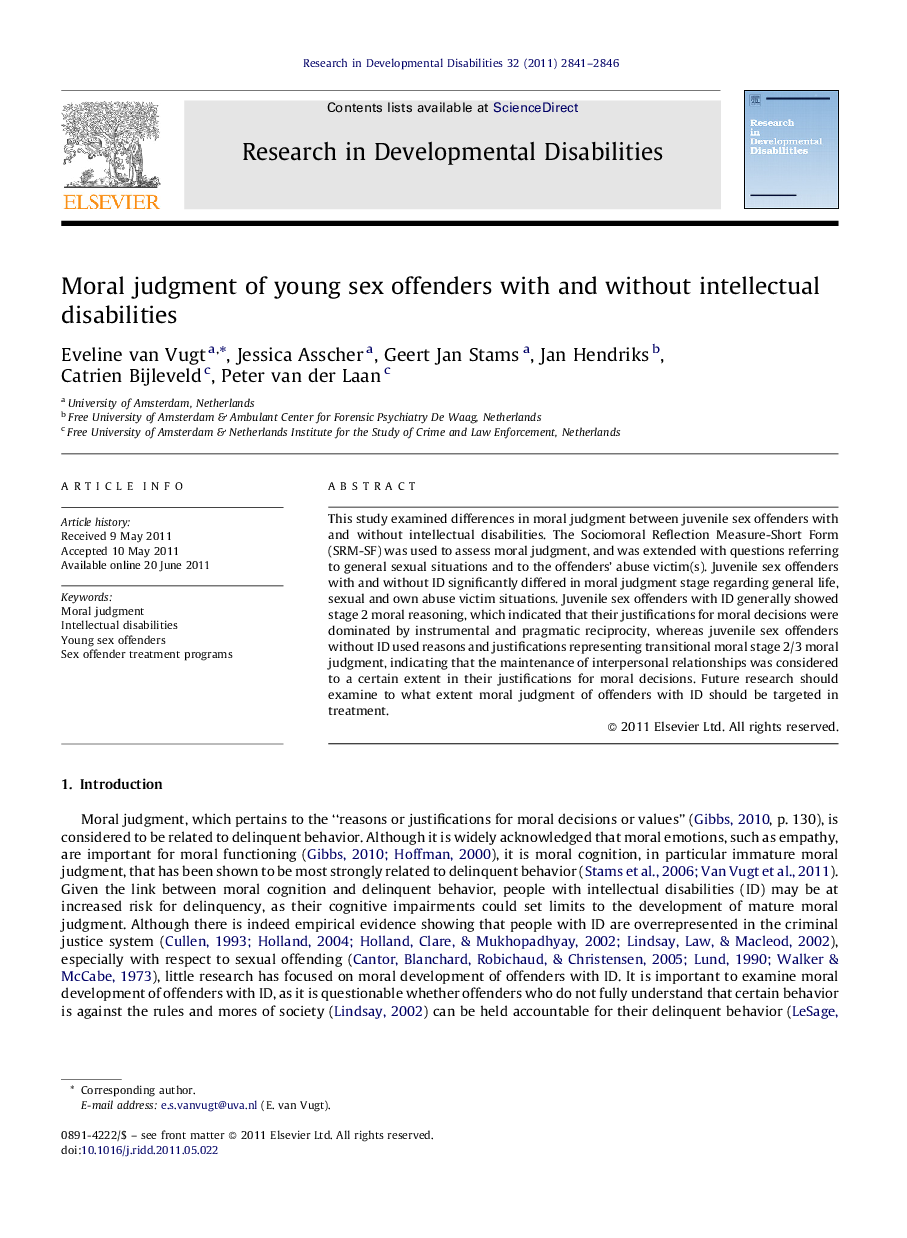| Article ID | Journal | Published Year | Pages | File Type |
|---|---|---|---|---|
| 371873 | Research in Developmental Disabilities | 2011 | 6 Pages |
This study examined differences in moral judgment between juvenile sex offenders with and without intellectual disabilities. The Sociomoral Reflection Measure-Short Form (SRM-SF) was used to assess moral judgment, and was extended with questions referring to general sexual situations and to the offenders’ abuse victim(s). Juvenile sex offenders with and without ID significantly differed in moral judgment stage regarding general life, sexual and own abuse victim situations. Juvenile sex offenders with ID generally showed stage 2 moral reasoning, which indicated that their justifications for moral decisions were dominated by instrumental and pragmatic reciprocity, whereas juvenile sex offenders without ID used reasons and justifications representing transitional moral stage 2/3 moral judgment, indicating that the maintenance of interpersonal relationships was considered to a certain extent in their justifications for moral decisions. Future research should examine to what extent moral judgment of offenders with ID should be targeted in treatment.
► Young sex offenders with ID have lower moral judgment stage than young sex offender without ID. ► This is the case for moral judgment concerning general life, sexual and own abuse victim situations. ► Justifications for moral decisions of young sex offenders with ID are dominated by instrumental and pragmatic reciprocity.
